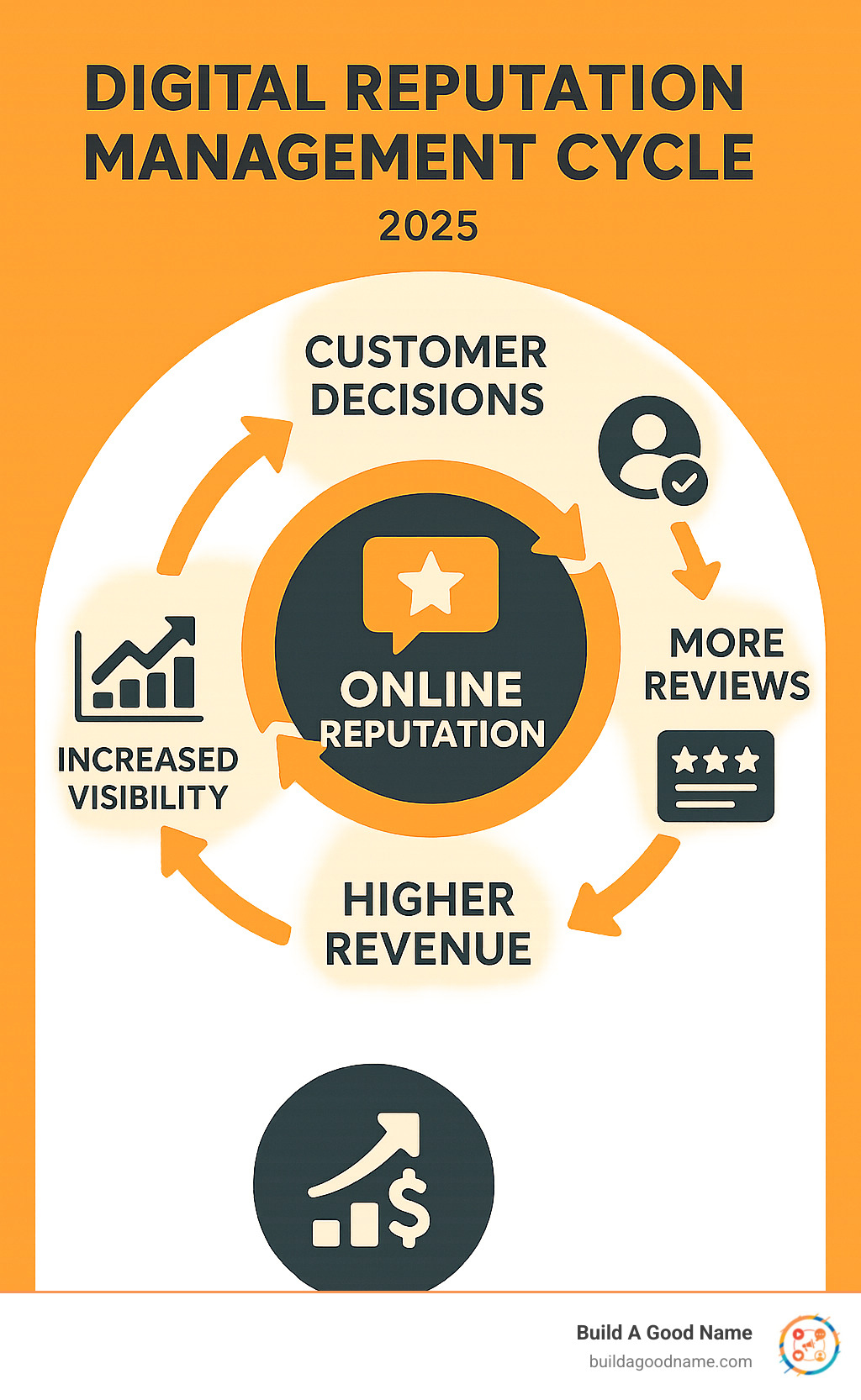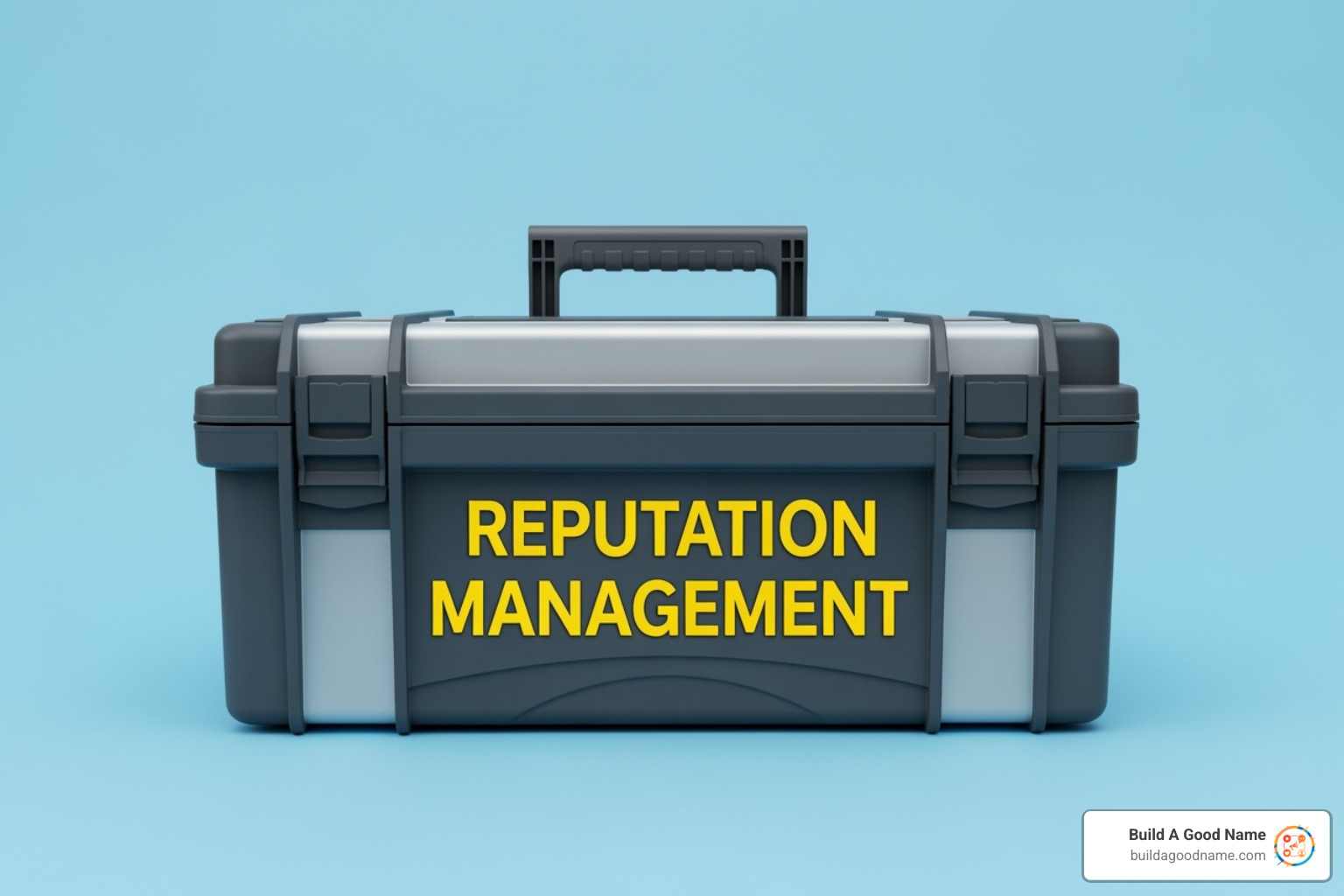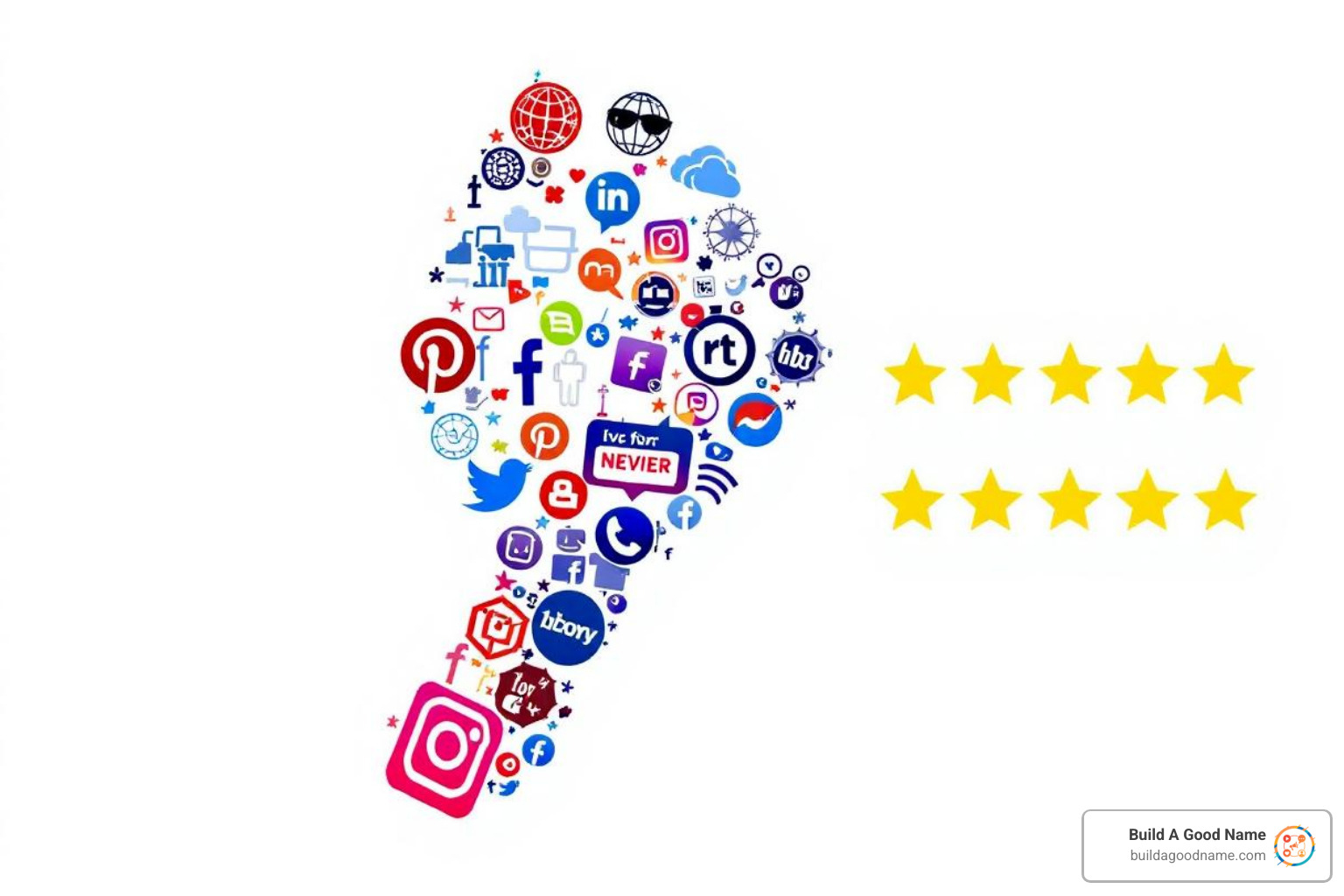Why Your Digital Reputation Matters More Than Ever
Digital reputation management is the ongoing practice of tracking and shaping what customers see about you online. In 2025 that visibility is inseparable from revenue: studies show up to 75 % of a company’s market value is reputation based.
What it involves:
- Monitor every mention of your name
- Respond quickly and professionally
- Create trust-building content
- Protect against damaging stories
- Measure sentiment and results
A single viral post can swing fortunes overnight. United Airlines lost $1.4 billion in value after one video, while Taco Bell spent years regaining trust after a beef-quality claim. The same forces affect local businesses—only with far less press support.
Yet the same web that can wound you is also the greatest tool for growth. Because 98 % of consumers read reviews, and 69 % ignore ones older than three months, proactive reputation work lets you control the story before prospects decide.

Introduction: What is Digital Reputation and Why Does It Matter?

Your digital reputation is the sum of everything people find when they Google your business—sites, reviews, social posts, even old news articles. According to The Economist Intelligence Unit, reputational assets now account for three-quarters of enterprise value.
For a concise definition, see Online reputation management on Wikipedia.
Defining Digital Reputation Management (DRM)
DRM is not traditional PR. PR tells stories after the fact; DRM shapes real-time search results and customer experiences. It blends two modes:
Proactive—publish helpful articles, own social channels, and invite happy customers to review.
Reactive—answer complaints, correct misinformation, and push harmful content off page one.
If you’re serious about long-term online presence and smart reputation management practices, you must master both.
The High Stakes
Harvard research shows each additional review star drives roughly 9 % more revenue. On the flip side, 85 % of shoppers avoid firms with recent negative reviews. Reputation literally raises or lowers your price tag at exit, sale, or franchise valuation.
Small businesses that practice reputation management grow online-sourced sales 24 % faster than those that don’t. In short: guard your Google results like you guard your cash register.
Core Strategies for Digital Reputation Management

Winning at DRM is like winning at chess: a strong opening, constant board awareness, and quick responses.
1. Proactive Moves: Build the Foundation
- Own your content – publish blogs, videos, FAQs, and case studies that answer real customer questions.
- Dominate the SERP – secure brand-match domains and optimise every asset so the first page is yours.
- Show up socially – consistent voice, helpful posts, and genuine engagement turn followers into advocates.
- Audit, claim, and correct every listing. Details must match everywhere online.
See reputation management for growing online presence for a five-step checklist.
2. Reactive Tactics: Limit the Damage
Negative items appear even for great companies. Your playbook:
- Removal when content violates laws or platform rules
- Suppression by publishing higher-ranking positive pages and backlinks
- Strategic replies that accept responsibility where warranted and move resolution offline
For many issues, Google reputation repair via suppression is quicker and cheaper than lawsuits.
Master these twin approaches and you’ll continually strengthen your online image.
The Power of Reviews and Social Media in Your Reputation

Reviews and social media are today’s word-of-mouth, only searchable and permanent. Ninety-eight percent of consumers read them before buying.
Reviews: Your Public Report Card
Google Reviews influence both trust and local rankings, while sector-specific sites (Healthgrades, OpenTable, etc.) matter in niche searches. Freshness counts: 69 % of shoppers ignore reviews older than 90 days.
Want more? Follow our guide to generate more Google reviews.
Responding the Right Way
Praise deserves thanks; criticism deserves empathy and a fix. Here’s a quick contrast:
| Poor | Better |
|---|---|
| “We did nothing wrong.” | “We’re sorry we missed the mark—please contact us so we can help.” |
Find full templates in our article on how to respond to Google reviews.
Social Media: Real-Time Reputation
Social posts spread faster than reviews. Set alerts, answer within hours, and amplify happy customer stories. A simple way to double the impact of good feedback is sharing Google reviews on social media.
Consistent, human engagement is how reputation management builds brand loyalty.
Tools, Expertise, and Ethical Considerations

Must-Have Tools
- Google Alerts – free baseline monitoring
- Social listening suites – sentiment + influencer tracking
- Review management platforms – automate asks and replies (see our review management software)
- AI assistants – personalised, on-brand responses at scale (learn about our AI for business reviews)
Required Skill Sets
PR storytelling, SEO, content creation, data analysis, and basic legal know-how form the core of modern DRM. If one of those pieces is missing, consider outside help or dedicated software such as the reputation management tools we recommend.
Walking the Ethical Line
Good DRM is transparent, authentic, and improvement-focused. Bad DRM fakes reviews, buries every complaint, or uses sketchy legal threats. Google itself says reputation management is fine—when it’s honest.
Avoid astroturfing, fake endorsements, and censorship. Focus instead on service excellence and the role of reputation management in customer trust.
Frequently Asked Questions about Digital Reputation Management
How long does it take to repair damage?
Minor issues can look better in 3–6 months. Major crises often need 12–24 months of steady work. Consistency beats short bursts.
Can I do it myself?
Yes—claim listings, ask for reviews, monitor Google Alerts, and reply politely. When tasks exceed 10 hours a week or involve legal/SEO complexities, hiring pros or using software becomes cost-effective.
Can negative content be erased forever?
Some items that violate laws or platform rules can be removed. Most legitimate criticism stays. Suppression—publishing stronger positive content—is usually faster and more sustainable than chasing total deletion.
Conclusion: Take Control of Your Online Narrative
Your reputation is your business’s most valuable asset – and in today’s world, that reputation lives online. When someone searches for your business, the results that appear tell a story. The question is: are you the one telling that story, or are you leaving it to chance?
Digital reputation management isn’t just about putting out fires when things go wrong. It’s about building trust, attracting customers, and creating real business growth through genuine relationships with your customers. The businesses that succeed in our connected world understand this simple truth and act on it every single day.
The Foundation is Always Excellence
Everything starts with providing exceptional service. No amount of reputation management can fix a business that consistently disappoints customers. But when you’re already doing great work, reputation management helps ensure the world knows about it.
Be Proactive, Not Reactive
The best time to start managing your reputation is before you need it. Building a strong online presence when things are going well is much easier than trying to recover from damage after it’s done. Think of it like insurance – you get it before you need it, not after the accident happens.
Accept Authentic Feedback
Both glowing reviews and constructive criticism provide valuable insights for your business. More importantly, they show potential customers that you care about their experience. A business with only perfect reviews can actually look suspicious – customers want to see how you handle challenges and improve over time.
Response Matters More Than Perfection
How you handle feedback often carries more weight than the feedback itself. A professional, caring response to a negative review can turn a critic into an advocate. It also shows everyone else reading that you’re committed to making things right.
The Right Tools Make All the Difference
Modern digital reputation management requires sophisticated monitoring and response capabilities that manual efforts simply can’t match. Trying to track every mention of your business across the internet while running your day-to-day operations is like trying to catch raindrops with a bucket.
At BuildAGoodName, we’ve built our AI-powered platform specifically for busy business owners who know their reputation matters but don’t have time to manage it manually. Our system helps you collect reviews, respond professionally, and showcase your best feedback – all while maintaining your authentic voice.
Stay Ethical, Stay Authentic
The temptation to take shortcuts in reputation management is real, but it’s also dangerous. Focus on improving actual customer experiences rather than manipulating perceptions. Authentic reputation management builds lasting trust that can’t be faked or bought.
Think Marathon, Not Sprint
Reputation management is an ongoing process, not a one-time project. Consistent effort over time yields the best results. It’s like maintaining good health – small, regular actions compound into significant benefits over time.
The power of authentic customer feedback cannot be overstated. When managed properly, reviews and social media interactions become powerful engines for business growth. They provide the social proof that influences buying decisions and the valuable insights that help you serve customers better.
Understanding how reputation management builds long-term business trust means recognizing that it’s not just about managing what people say about you. It’s about creating systems that consistently deliver exceptional experiences worth sharing.
Your online reputation will continue to evolve whether you actively manage it or not. The only question is whether you’ll take control of that narrative or leave it to chance.
The digital world rewards businesses that are authentic, responsive, and committed to continuous improvement. By implementing the strategies we’ve covered in this guide, you’re not just managing your reputation – you’re building a sustainable competitive advantage that will serve your business for years to come.
Ready to take control of your online story? Start by learning how to generate more Google reviews. Your future customers are searching for businesses like yours right now. Make sure they find a story worth believing in.



